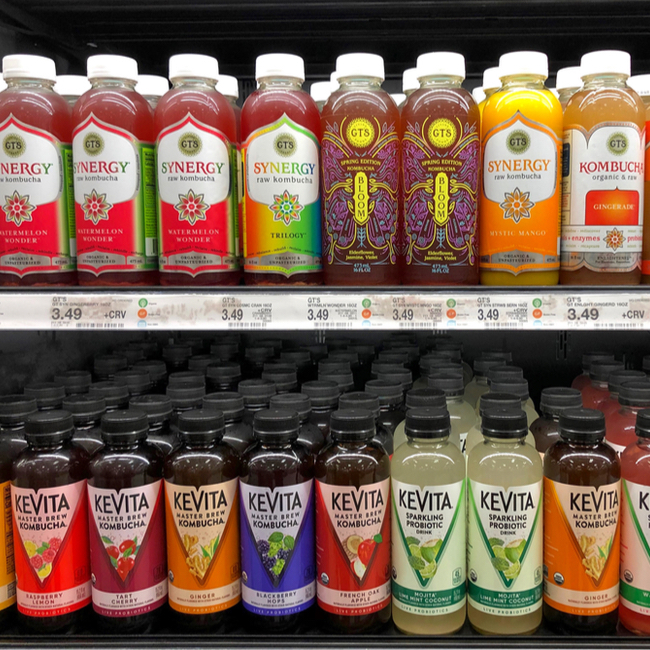When trying to lose weight, the best beverages to fuel your journey (other than water) are those that provide energy and promote healthy digestion. With that said, we reached out to doctors, nutritionists, dietitians and other health experts for a caffeinated beverage suggestion that is often linked to gut health and has energy-boosting caffeine (but not too much of course!) within each sip. Read on for tips and insight from Dr. M. Kara, digestive health, functional medicine and natural remedies expert and creator of KaraMD, Trista Best, MPH, RD, LD, registered dietitian at Balance One Supplements, and Dana Ellis Hunnes, PhD, MPH, RD, senior dietitian at UCLA medical center and assistant professor at UCLA Fielding school of public health.


How Kombucha Can Benefit Your Gut & Weight Loss
Kombucha is a fermented, probiotic-rich beverage which is often turned to for its many health benefits, Best explains. The gut bacteria, she says, play many roles in weight regulation in both weight loss and weight gain. "One primary reason is the bacteria's effect on appetite regulation," she adds, "When gut bacteria is off, the short-chain fatty acid production in the gut is amped up, which triggers appetite hormone production." Best notes that these hormones are typically those involved in increasing appetite and leading to weight gain.
Kara agrees, and deems kombucha to be "a great gut-healthy beverage to drink daily to help support healthy weight loss," Kombucha, he says, is "high in prebiotics, probiotics, and postbiotics." The foods we eat play an important role in gut microbiome health and balance, so one way to support a healthy microbiome through diet, Kara adds, is "to eat foods that contain healthy amounts of prebiotics, probiotics, and postbiotics," as kombucha does. Because kombucha is intended to help replenish the gut's good bacteria, Best suggests it may be best to drink it after you have eaten at least one meal. "This would mean between 10 am and 2 pm for most people, following a typical eating schedule," she says.

Prebiotics are the "fibrous compounds that create the food the probiotics need to thrive," Kara continues, "Think of it like the fuel for a car." He notes that probiotics are the "live organisms" that provide a number of health benefits for our gut, and that in Kara's analogy, "this is the car engine." This means that postbiotics come from "the metabolites your probiotics create." They have "important nutrients and vitamins your body needs to thrive," therefore, Kara says, "here we have the car wheels."
Additionally, Hunnes points out that the probiotics and the antioxidants in kombucha are "anti-inflammatory and can aid in promoting GI health by helping to colonize the GI tract with healthy bacteria." The antioxidants also help keep the inflammation away, she says, "promoting the health of the probiotics as well." It is also thought that kombucha can "slow down the digestion of carbohydrates by, likely in-part, because of the healthy anti-inflammation effects it has on the GI tract," Hunnes notes. She concludes that these are just some of the healthy benefits from drinking kombucha, "which has been taken into account for hundreds of years."


























